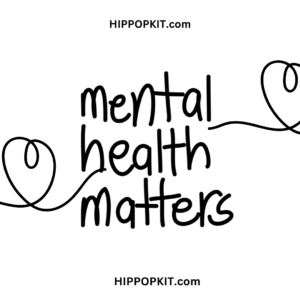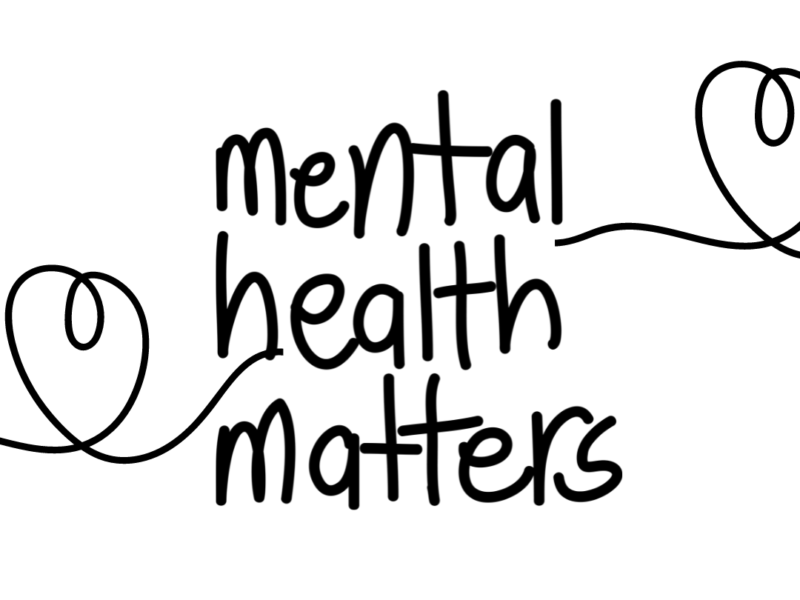Mental Health Matters: Tips for Supporting Yourself and Others
Mental health, just like physical health, is an integral part of our overall well-being. It encompasses our emotional, psychological, and social well-being, influencing how we think, feel, and act. Just as we wouldn’t hesitate to seek medical attention for a physical ailment, prioritizing our mental health is equally crucial.
Unfortunately, stigma and misinformation surrounding mental health often prevent individuals from seeking the support they need. This is why it’s essential to have open conversations, raise awareness, and equip ourselves with resources and knowledge to support ourselves and others effectively.

Understanding Mental Health
Mental health exists on a spectrum, much like physical health. We all experience ups and downs, moments of stress and sadness, alongside joy and fulfillment. However, when these negative emotions become persistent and interfere with daily life, it might indicate the presence of a mental health condition.
Common mental health conditions include:
- Anxiety Disorders: Characterized by excessive worry, fear, and physical symptoms like rapid heartbeat or sweating.
- Depression: Persistent feelings of sadness, hopelessness, and loss of interest in activities once enjoyed.
- Post-traumatic stress disorder (PTSD): Develops after experiencing or witnessing a traumatic event, causing flashbacks, nightmares, and severe anxiety.
- Eating Disorders: Unhealthy eating habits and distorted body image that negatively affect physical and mental well-being.
- Substance Abuse Disorders: Uncontrolled use of alcohol or drugs, leading to harmful consequences in daily life.
Tips for Supporting Yourself:
- Self-Care:
- Prioritize adequate sleep: Establishing a consistent sleep routine contributes to improved mood, cognitive function, and overall well-being.
- Engage in regular physical activity: Exercise is linked to the release of endorphins, reducing stress and promoting mental clarity.
- Practice mindfulness and meditation: Mindfulness techniques, such as meditation and deep breathing exercises, can help manage stress and enhance self-awareness.
- Establish Healthy Boundaries:
- Learn to say no: Setting boundaries is crucial for preventing burnout. It is okay to decline additional responsibilities when feeling overwhelmed.
- Communicate your needs to others: Open and honest communication fosters understanding among friends, family, and colleagues, creating a supportive environment.
- Create a balance between work and personal life: Striking a balance helps maintain a healthy lifestyle. Allocate time for work, recreation, and relaxation.
- Seek Professional Help:
- Don’t hesitate to consult a mental health professional: Seeking therapy is a proactive step toward addressing and managing mental health challenges.
- Therapy can provide valuable tools: Therapists offer coping strategies, emotional support, and a safe space for self-reflection and growth.
- Connect with Others:
- Build a support network: Cultivate relationships with individuals who provide emotional support and understanding.
- Join clubs or groups with shared interests: Engaging in activities with like-minded individuals fosters a sense of belonging and connection.
- Mindful Practices:
- Practice deep breathing: Deep, intentional breathing can promote relaxation and reduce anxiety.
- Try yoga or tai chi: Mind-body practices like yoga and tai chi combine physical activity with mindfulness, promoting both physical and mental well-being.
- Stay present in the moment: Mindfulness involves focusing on the present moment, reducing stress associated with past regrets or future worries.
Tips for Supporting Others:
- Be a Good Listener:
- Provide a safe space for expression: Encourage open dialogue without judgment, allowing individuals to share their thoughts and feelings freely.
- Avoid judgment and criticism: Offer empathy and understanding instead of passing judgment, creating an environment where individuals feel heard and validated.
- Educate Yourself:
- Learn about their specific mental health condition: Understanding the nuances of mental health conditions promotes empathy and informed support.
- Understand the potential impact on daily life: Recognize that mental health challenges can affect various aspects of a person’s life, including relationships, work, and daily functioning.
- Offer Practical Help:
- Assist with daily tasks if needed: Practical assistance, such as helping with chores or responsibilities, can alleviate stress during challenging times.
- Provide information on available resources: Offer guidance on available mental health resources, including hotlines, support groups, and professional services.
- Encourage Professional Support:
- Support them in seeking therapy or counseling: Encourage individuals to explore professional help and offer assistance in finding suitable mental health professionals.
- Offer to accompany them to appointments: Providing emotional support during therapy appointments can be comforting and encourage continued engagement.
- Stay Connected:
- Regularly check in on their well-being: Consistent communication helps maintain a connection and shows that you care about their ongoing mental health.
- Be patient and understanding: Recognize that healing is a process, and patience is crucial. Offer understanding and encouragement throughout their mental health journey.
Prioritizing mental health is a collective responsibility that involves understanding, empathy, and support. By recognizing the signs and implementing self-care strategies, individuals can navigate mental health challenges more effectively. Additionally, offering support to others through active listening, education, and encouragement to seek professional help contributes to the creation of a compassionate and inclusive community where mental health truly matters. Remember, seeking help is a sign of strength, and together, we can break the stigma surrounding mental health issues.






